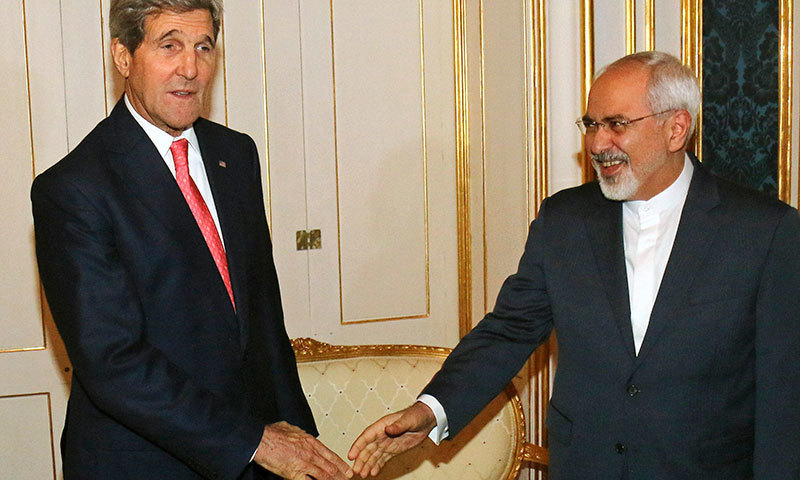Iran, major powers reach historic nuclear deal in Vienna, diplomats confirm



VIENNA: Iran and six major powers have reached a historic nuclear deal, which will grant Tehran sanctions relief in exchange for curbs on its nuclear programme, an Iranian diplomat said on Tuesday.
"All the hard work has paid off and we sealed a deal. God bless our people," the diplomat told Reuters on condition of anonymity. Another Iranian official confirmed the agreement.
A senior Western diplomat also confirmed that the landmark Iran nuclear agreement was reached after clearing final obstacles.
The diplomat, speaking on condition of anonymity, made the comments Tuesday amid non-stop negotiations between Iran and world powers in Vienna.
The diplomat says the deal includes a compromise between Washington and Tehran that would allow UN inspectors to press for visits to Iranian military sites as part of their monitoring duties. Iranian state television earlier rejected such a demand.
But access at will to any site would not necessarily be granted and even if so, could be delayed, a condition that critics of the deal are sure to seize on as possibly giving Tehran time to cover any sign of non-compliance with its commitments.
Under the deal, Tehran would have the right to challenge the UN request and an arbitration board composed of Iran and the six world powers that negotiated with it would have to decide on the issue.
Still, such an arrangement would be a notable departure from assertions by top Iranian officials that their country would never allow the UN's International Atomic Energy Agency into such sites. Iran has argued that such visits by the IAEA would be a cover for spying on its military secrets.
A formal announcement is expected after a final meeting between all negotiators. The foreign ministers of Iran and the six powers (Britain, China, France, Germany, Russia and the United States) will meet at 0830 GMT at the United Nations centre in Vienna and a news conference will follow, a spokeswoman for the European Union said.
Iran's Foreign Minister, Mohammad Javad Zarif, and EU's Foreign Policy Chief Federica Mogherini are expected to read a joint statement, diplomats said
Read more: Iran talks hit final stage, announcement expected
The talks have been aimed at reaching a final deal to limit Iran's nuclear program in exchange for lifting economic sanctions.
Iran long has said its nuclear program is for peaceful purposes. The West fears it could be used to build an atomic bomb.
Movement toward a deal has been marked by years of tough negotiations. The pact is meant to impose long-term, verifiable limits on nuclear programs that Tehran could modify to produce weapons. Iran, in return, would get tens of billions of dollars in sanctions relief.
Read more: Billions up for grabs if nuclear deal opens Iran economy
Diplomats familiar with the talks said most of the nuts and bolts of implementing the deal have been agreed upon. But over the past week, issues that were previously on the back-burner have led to new disputes.
Among them was Iran's demand for a lifting of a UN arms embargo and its insistence that any UN Security Council resolution approving the nuclear deal be written in a way that stops describing Iran's nuclear activities as illegal.
A diplomat familiar with the negotiations said disagreements also persisted on how long some of the restrictions on imports of nuclear technology and other embargoes outlined in any new Security Council resolution will last.
The diplomat, who demanded anonymity because the diplomat wasn't allowed to discuss the confidential talks, said restrictions will last for years, not months.
Read more: Implications of Iran’s N-deal
Pakistan welcomes nuclear agreement between Iran and major world powers
Pakistan has welcomed the historic nuclear deal reached between Iran and major world powers.
Foreign office spokesperson Qazi Khalilullah said “Pakistan has consistently maintained that the Iranian nuclear issue should be peacefully resolved through dialogue.”
"As a neighbouring country, we have also reiterated that reciprocal confidence-building measures relating to Iran’s nuclear programme auger well for peace and security in our region," the spokesperson added.












































